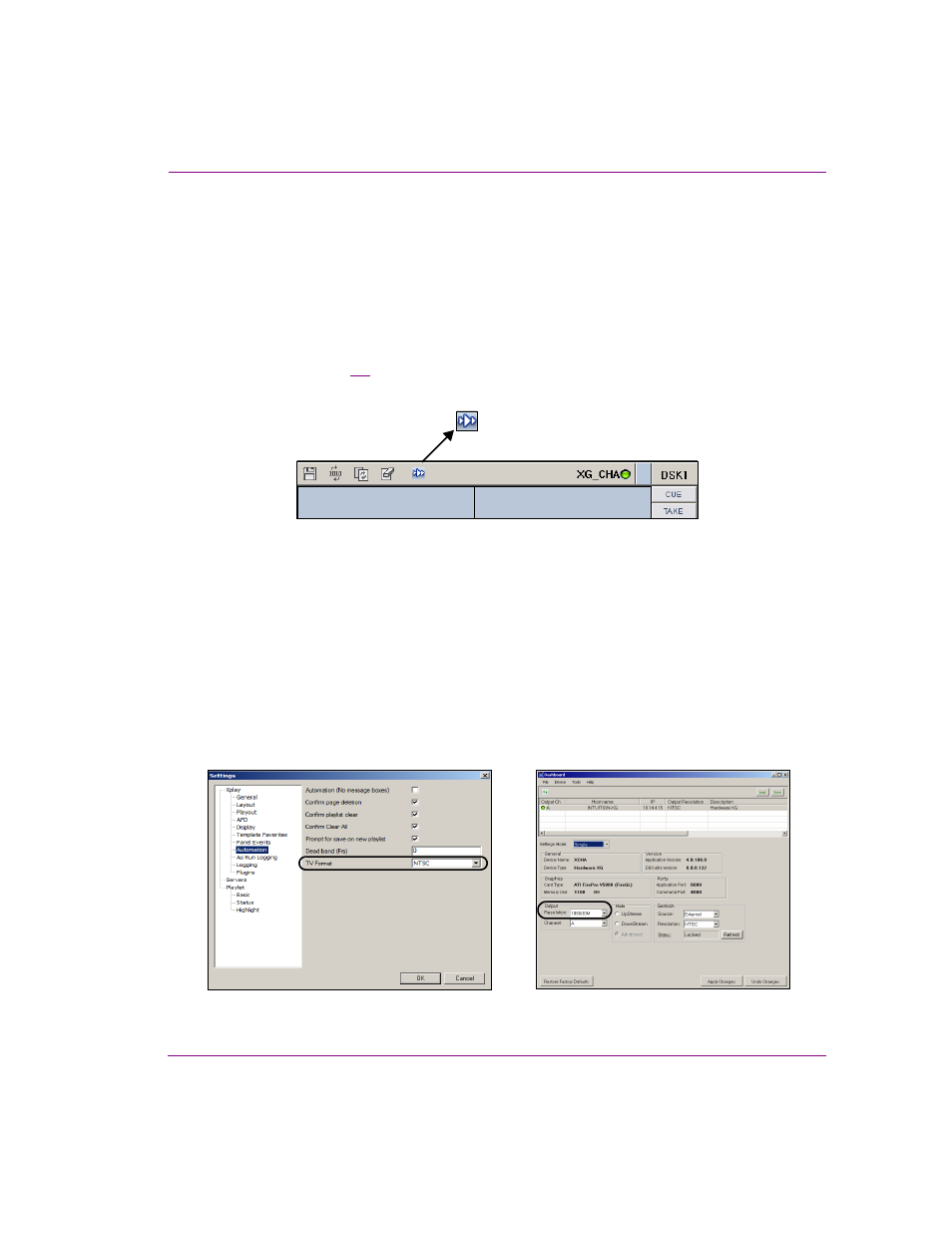Xplay’s automation settings, Xplay’s automation settings -9 – Grass Valley Intuition XG v.5.0 User Manual
Page 42

Intuition XG Configuration Guide
3-9
Intuition XG’s Desktop Applications & Tools
If the device is properly mapped to a protocol, simply click OK or C
ANCEL
to close the
X
PLAY
A
UTOMATION
C
ONFIGURATION
window.
However, if the device is not mapped to an automation protocol:
a.
Select the A
DD
P
ROTOCOL
button next to the device.
b.
Select a protocol from the drop-down list and press E
NTER
.
c.
Verify and set the protocol’s properties.
d.
Click OK.
Once the Automation Configuration is completed, an automation icon will appear in Xplay’s
Device Views (figure
) as a visual reminder that automation is configured to control the
device associated with that device keyer.
Figure 3-9. Automation icon in Xplay’s device view
Xplay’s Automation settings
Xplay has a series of settings that define its behavior and functionality. Among these
settings are a series of A
UTOMATION
settings, which are used when Xplay is used by an
automation system to control the Intuition XG device.
Xplay’s Settings window is accessed by selecting the T
OOLS
>S
ETTINGS
menu command.
While each of the Xplay and Automation settings are described in the X
PLAY
U
SER
M
ANUAL
,
it is worth noting that the TV F
ORMAT
should match the TV format of the templates that you
build in Xstudio and the O
UTPUT
R
ESOLUTION
setting in the Intuition XG’s Dashboard.
Figure 3-10. Ensure that Xplay’s TV Format setting and Dashboard’s Resolution setting are identical
